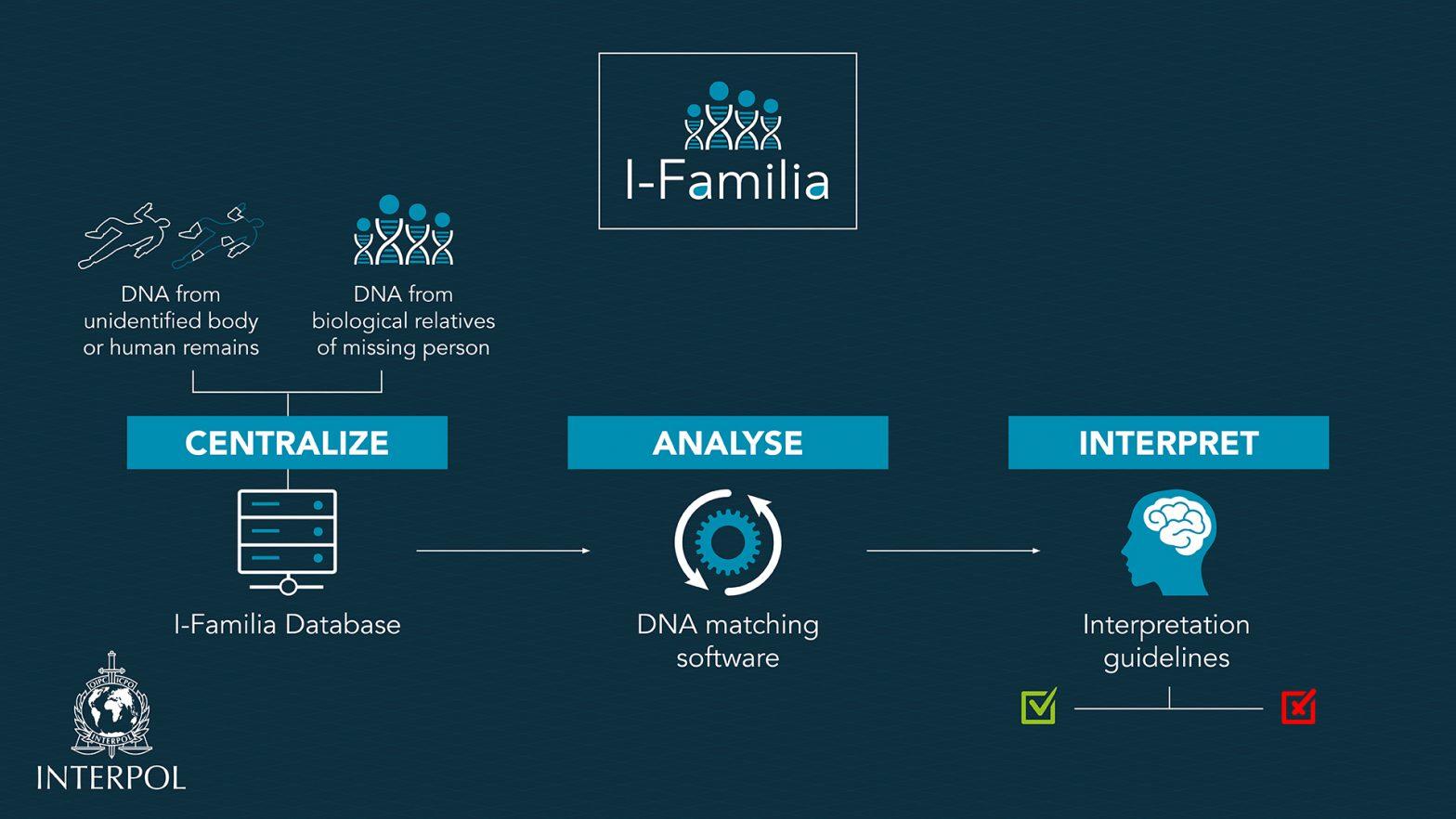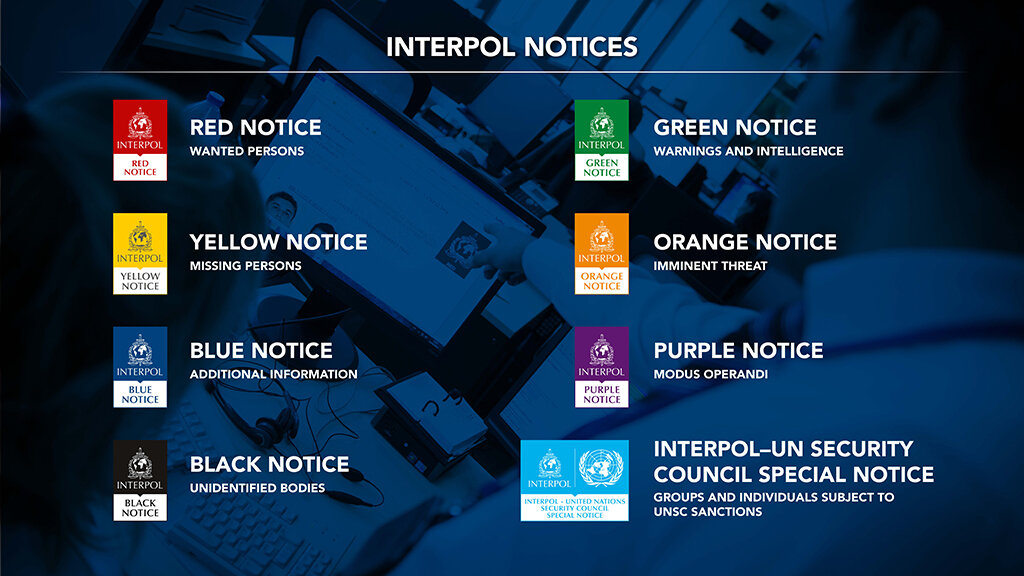Context
-
Recently, the Interpol has launched a new global database named “I-Familia” to identify missing persons through family DNA.
About I-Familia Platform
- The INTERPOL applied cutting-edge scientific research and used the DNA of relatives to identify missing persons or unidentified human remains around the world.

- DNA kinship matching is used mostly in cases where a direct sample of the missing person is not available.
- It is the first global database to automatically control for such differences without requiring knowledge of the missing person’s genetic ancestry.
- It provides standardised guidelines on what constitutes a match.
- It is a pioneering new service that can perform complex DNA kinship calculations on profiles stored in the system.
- It is powered by Bonaparte, a forensic DNA matching software system developed by SMART Research.
Significance of I-Familia Platform
- It will help the police solve cold cases in member countries.
- It can perform millions of calculations in a short space of time which is then interpreted by forensic DNA experts at the INTERPOL General Secretariat.
- It is the result of scientific research, state-of-the-art software development and extensive validation tests.
- The driving principle behind I-Familia is humanitarian which aim is to reunite loved ones or to bring closure to cases and allow families to rebuild their lives.
Working of I-Familia
- It has three components:
- A dedicated global database to host the DNA profiles provided by relatives, held separately from any criminal data;
- DNA matching software called Bonaparte, developed by Dutch company Smart Research; and
- Interpretation guidelines developed by Interpol.
- The Bonaparte technology uses advanced statistical algorithms to calculate the probability of a match compared against an interpretation table.
Back to Basics
Types of DNA Identification
- DNA identification through direct matching
- A direct DNA sample from the missing person can be compared to the DNA from an unidentified body or human remains to see if a match can be found.
- DNA identification through kinship matching
- Biological relatives share a percentage of their DNA, depending on their relationship.
- In the event that a DNA sample from the missing person cannot be obtained for direct matching, DNA from close family members (parents, children, siblings) can also be compared.
About INTERPOL
- The International Criminal Police Organization (INTERPOL) is an international organization that facilitates worldwide police cooperation and crime control.

- It is an inter-governmental organization with 194 member countries.
- In each member country, an INTERPOL National Central Bureau (NCB) provides the central point of contact for the General Secretariat and other NCBs.
- The Central Bureau of Investigation (CBI) is designated as the National Central Bureau of India.
- The headquarters in Lyon (France) coordinates much of the policing expertise and services we provide to member countries.
